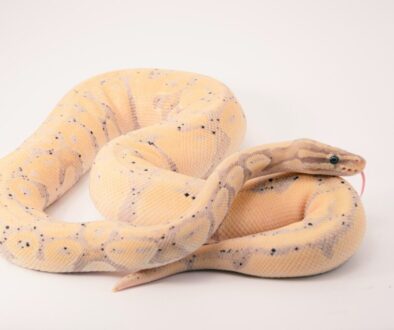The Wild Side of Alabama: A Guide to Owning Exotic Pets
Ever dreamt of sharing your home with a furry friend that’s a little less “Fido” and a little more “fascinating”? The exotic pet world beckons, and Alabama residents have a surprising range of options, albeit with regulations to ensure both public safety and animal welfare. This guide will navigate the legalities and considerations of owning exotic pets in the Heart of Dixie.
Understanding the Permit System
Owning most exotic pets in Alabama requires a permit from the Alabama Department of Conservation and Natural Resources (ADCNR). The specifics vary depending on the animal’s classification. Here’s a breakdown to get you started:
- Off-Limits (Class I): Forget about having a lion cub as a housemate. Class I animals like big cats, bears, and venomous reptiles are strictly prohibited for private ownership.
- Carefully Considered (Class II): This class encompasses a wider range of animals, including wolves, primates, and certain reptiles. Owning a Class II animal requires a specific permit from the ADCNR. Be prepared to demonstrate experience handling the chosen species, provide a detailed enclosure plan that meets specific size and enrichment requirements, and potentially obtain liability insurance.
Demystifying the Permit Process
Obtaining a permit can seem daunting, but let’s break it down.
- Identify Your Dream Pet: Research the specific care needs and regulations for your desired animal.
- Consult the ADCNR Website: Their website provides a wealth of information, including downloadable permit applications for different Class II animals.
- Gather Necessary Documents: This may include proof of experience, enclosure plans, and veterinarian references. Fees typically apply, so check the website for current costs.
- Submit Your Application: Allow ample processing time, as inspections of your enclosure might be required.
Beyond the Permit: Responsible Ownership
Owning an exotic pet is a significant commitment that goes far beyond legalities. Here are some crucial factors to consider:
- Understanding Their Needs: Exotic animals have specific dietary requirements, habitat needs (think humidity or basking areas!), and enrichment activities to prevent boredom and frustration. Thoroughly research what your chosen animal needs to thrive.
- Lifelong Companionship: Many exotic animals have lengthy lifespans. A seemingly cute Fennec Fox might live for 10-14 years, while a Sulcata Tortoise can easily clock in at over 70! Ensure you’re prepared for the long haul.
- Escaped Pet Risks: Exotic animals escaping their enclosures can pose a threat to the local ecosystem and public safety. Building a secure enclosure and having a recapture plan are crucial.
Alternatives to Owning Exotics
The allure of the exotic is undeniable, but responsible ownership isn’t always the right fit for everyone. Here are some alternative ways to experience the wonder of these animals:
- Volunteer at Sanctuaries: Several reputable sanctuaries in Alabama care for rescued exotic animals. Volunteering allows you to interact with these fascinating creatures while contributing to their well-being.
- Embrace Domestic Exotics: Maybe you just crave a unique-looking companion. Consider domesticated breeds with exotic flair! Sphynx cats are hairless wonders, while Dutch rabbits come in a stunning array of colors and patterns.
Making an Informed Choice
The exotic pet world offers a chance to connect with amazing creatures, but it requires thorough research, responsible planning, and a commitment to the animal’s well-being.
- Research, Research, Research: Before acquiring any exotic pet, immerse yourself in information about their specific needs, potential health concerns, and responsible care practices.
- Prioritize Animal Welfare: Remember, owning an exotic pet is a privilege, not a right. Always prioritize the animal’s welfare, ensuring their enclosure meets their needs and they receive proper veterinary care.
Bonus: Frequently Asked Questions (FAQ)
Q: Are there any exotic animals I can own without a permit?
A: Unprotected native species may not require an ADCNR permit, but federal regulations might apply. Always double-check before acquiring any animal.
Q: Can I breed exotic pets?
A: Breeding regulations for Class II animals can be complex. Contact the ADCNR for specific information regarding your chosen species.
Q: Where can I find a vet experienced with exotic pets?
A: The Association of Exotic Animal Veterinarians (https://aemv.org/) has a searchable directory to help you find a qualified vet in your area.
By following these guidelines, you can navigate the legalities and responsibilities of exotic pet ownership in Alabama. Remember, responsible pet ownership ensures a happy life for both you and your extraordinary companion.


